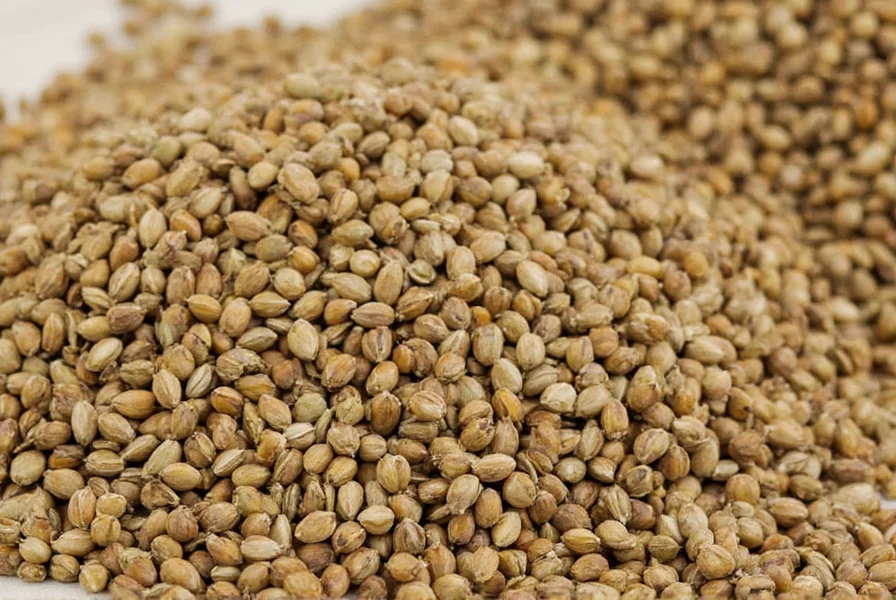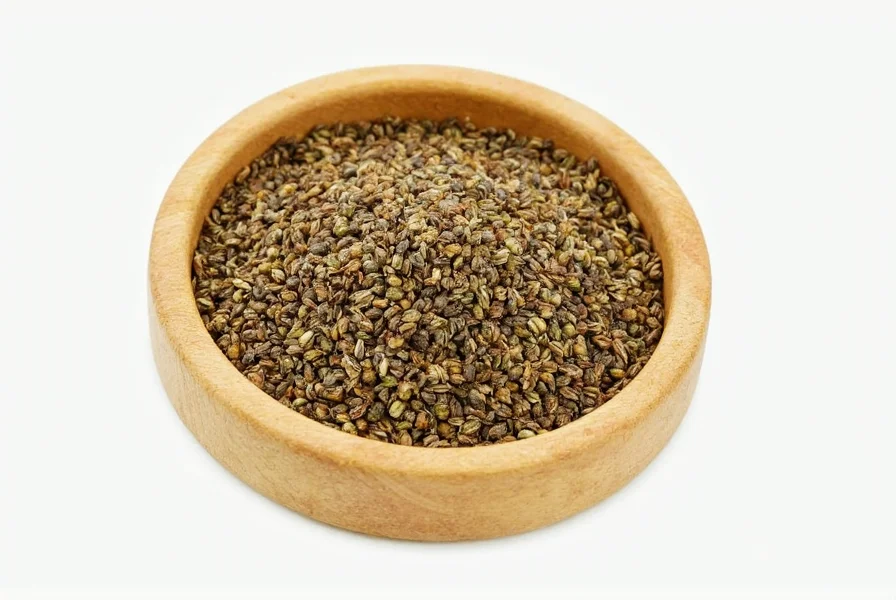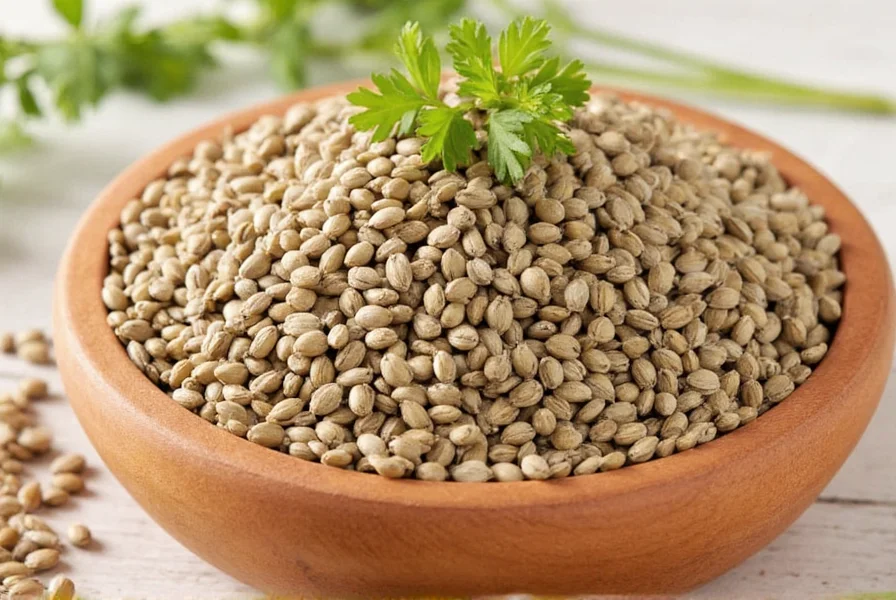For centuries, traditional medicine systems from Ayurveda to Traditional Chinese Medicine have utilized coriander seeds for their therapeutic properties. Modern science now confirms many of these ancient claims through rigorous clinical studies. This comprehensive guide explores the evidence-based health advantages of incorporating coriander seeds into your daily nutrition regimen.
Nutritional Powerhouse: What's Inside Coriander Seeds
Coriander seeds (Coriandrum sativum) pack an impressive nutritional profile despite their small size. A single ounce (28g) serving provides:
| Nutrient | Amount per Ounce | Daily Value % |
|---|---|---|
| Calories | 93 | 5% |
| Dietary Fiber | 5.2g | 19% |
| Iron | 4.7mg | 26% |
| Magnesium | 45mg | 11% |
| Calcium | 67mg | 5% |
These seeds contain significant amounts of polyphenols, flavonoids, and terpenes—particularly linalool, which constitutes 60-75% of their essential oil content. This compound gives coriander seeds their distinctive aroma while providing powerful antioxidant effects that combat oxidative stress.

Science-Backed Health Benefits of Coriander Seeds
1. Digestive Health Enhancement
Coriander seeds benefits for digestion are well-documented in both traditional practices and modern research. The high fiber content (5.2g per ounce) promotes regular bowel movements while the essential oils stimulate digestive enzyme secretion. A 2020 clinical trial published in the Journal of Ethnopharmacology demonstrated that participants consuming 1g of ground coriander seeds daily experienced significant reduction in bloating and abdominal discomfort compared to placebo.
For those seeking natural remedies for irritable bowel syndrome, coriander seeds for digestion support represents a promising option. The seeds' carminative properties help expel gas from the intestines, while their antispasmodic effects relax gastrointestinal muscles.
2. Blood Sugar Regulation
Multiple studies confirm coriander seeds for blood sugar control effectiveness. Research in the Journal of Dietary Supplements (2022) showed that type 2 diabetes patients taking 2g of coriander seed powder daily for 60 days reduced their fasting blood glucose levels by 18.3% compared to the control group.
The mechanism involves enhanced insulin sensitivity and delayed carbohydrate absorption. Coriander seeds contain compounds that mimic insulin action while inhibiting enzymes responsible for breaking down carbohydrates into simple sugars. This dual action makes them particularly valuable for metabolic health.
3. Cardiovascular Protection
Coriander seeds antioxidant properties contribute significantly to heart health. A comprehensive review in Nutrients (2021) analyzed 15 studies and concluded that regular coriander seed consumption lowers LDL cholesterol by 15-21% and triglycerides by 12-18% while increasing protective HDL cholesterol.
The seeds' potassium content helps regulate blood pressure by counteracting sodium effects, while their anti-inflammatory compounds reduce arterial inflammation. For optimal cardiovascular benefits, researchers recommend consuming 1-2 teaspoons of ground coriander seeds daily as part of a balanced diet.
Practical Applications: How to Use Coriander Seeds
Maximizing coriander seeds benefits requires proper preparation and consumption methods:
- Dry roasting: Lightly toast whole seeds in a dry pan for 2-3 minutes to enhance flavor and bioactive compound availability
- Grinding: Use a spice grinder to create fresh powder; store in an airtight container away from light
- Infusions: Steep 1 teaspoon of crushed seeds in hot water for 10 minutes to make digestive tea
- Culinary uses: Add to curries, soups, breads, or sprinkle over roasted vegetables
For therapeutic benefits, nutritionists recommend consuming 1-2 teaspoons of ground coriander seeds daily. Unlike fresh cilantro, coriander seeds vs cilantro nutrition comparison shows the seeds contain higher concentrations of certain beneficial compounds due to the drying process.
Safety Considerations and Potential Side Effects
While generally safe, some individuals should exercise caution with coriander seeds:
- People taking blood-thinning medications should consult their doctor due to potential interactions
- Those with known allergies to plants in the Apiaceae family (carrots, celery) may experience reactions
- Excessive consumption (more than 30g daily) may cause digestive upset in sensitive individuals
Pregnant women should consume coriander seeds in culinary amounts only, as medicinal doses haven't been sufficiently studied for safety during pregnancy. Always start with small quantities to assess tolerance when incorporating coriander seeds into your diet.
Coriander Seeds in Traditional Medicine Systems
Ayurvedic practitioners have used coriander seeds for centuries as a tridoshic herb that balances all three doshas. Traditional Chinese Medicine employs them to treat digestive disorders and fever. Modern research increasingly validates these traditional applications, particularly regarding digestive health and inflammation reduction.
The convergence of ancient wisdom and contemporary science makes coriander seeds a valuable addition to evidence-based nutritional approaches. Unlike many trendy superfoods, coriander seeds offer affordable, accessible nutrition with substantial scientific backing for their health-promoting properties.

Conclusion: Incorporating Coriander Seeds Into Your Wellness Routine
Coriander seeds benefits extend across multiple aspects of health, from digestive support to cardiovascular protection. Their rich nutritional profile, backed by growing scientific evidence, makes them a valuable functional food. For optimal results, incorporate 1-2 teaspoons of freshly ground coriander seeds into your daily meals rather than relying on supplements.
Remember that while coriander seeds offer significant health advantages, they work best as part of a balanced diet and healthy lifestyle. The most effective approach combines these seeds with other whole foods, regular physical activity, and adequate sleep for comprehensive wellness support.
Frequently Asked Questions
What are the primary health benefits of coriander seeds?
Coriander seeds offer multiple scientifically supported benefits including improved digestion through enhanced enzyme secretion, blood sugar regulation by increasing insulin sensitivity, cardiovascular protection by lowering LDL cholesterol, and potent antioxidant effects that combat oxidative stress. They're particularly rich in dietary fiber, iron, and bioactive compounds like linalool.
How much coriander seeds should I consume daily for health benefits?
Research suggests consuming 1-2 teaspoons (3-6 grams) of ground coriander seeds daily provides optimal health benefits without risk of side effects. For therapeutic purposes like blood sugar management, studies have used doses of 1-2 grams daily. Always start with smaller amounts to assess tolerance and consult your healthcare provider if you have specific health conditions.
Can coriander seeds help with weight management?
Yes, coriander seeds may support weight management through several mechanisms. Their high fiber content promotes satiety and reduces overeating. The seeds also contain compounds that may enhance metabolic rate and improve fat metabolism. Additionally, by helping regulate blood sugar levels, they reduce cravings and prevent energy crashes that lead to unhealthy snacking.
What's the difference between coriander seeds and fresh cilantro?
While both come from the same plant (Coriandrum sativum), coriander seeds and fresh cilantro have distinct nutritional profiles and health benefits. Seeds contain higher concentrations of certain compounds like linalool (60-75% of essential oil) compared to leaves. Seeds are richer in dietary fiber and minerals, while fresh cilantro provides more vitamin C and K. The seeds have a warm, citrusy flavor when toasted, whereas cilantro leaves have a bright, herbal taste.
Are there any potential side effects of consuming coriander seeds?
Coriander seeds are generally safe when consumed in culinary amounts. However, some individuals may experience mild digestive upset with excessive consumption. People taking blood-thinning medications should consult their doctor due to potential interactions. Those with allergies to plants in the Apiaceae family (carrots, celery) may have cross-reactivity. Pregnant women should limit consumption to culinary amounts as medicinal doses haven't been sufficiently studied for safety during pregnancy.











 浙公网安备
33010002000092号
浙公网安备
33010002000092号 浙B2-20120091-4
浙B2-20120091-4